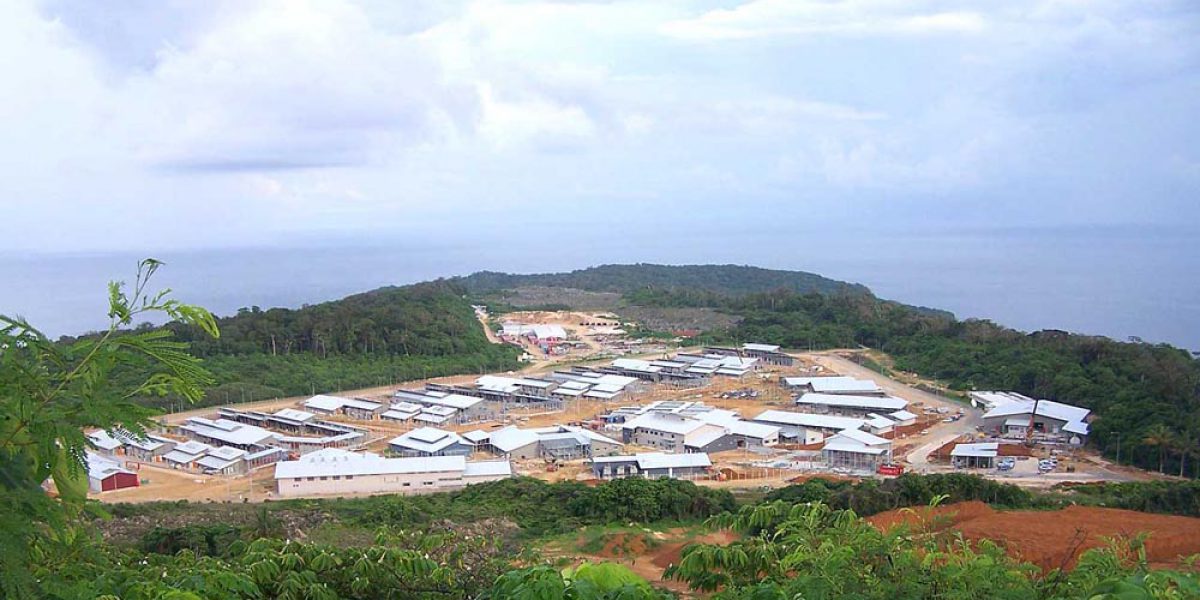Australia: What I saw at Christmas Island Detention Centre
29 February 2012|Fr Celso Romanin SJ

Sydney, 29 February 2012 – When Fr Celso Romanin SJ arrived on Christmas Island in October this year, he encountered detainees living without hope, scenes that reminded him of his work years earlier with refugees in Asia and Africa. Here, he reflects on his experience.
In the mid-1980s a group of young men from Hei Ling Chow were involved in a violent riot and were removed to Victoria Prison on the island of Hong Kong in what can only be described as the bowels of the prison. The authorities said that although it was within the prison, this was not in fact prison but part of the detention system.
No one ever went there – no lawyer, no case-worker.
I, as chaplain, went each week, and felt the utter powerlessness of the young men. I listened as best I could to their stories, and felt the hopelessness of their situation. Whilst others lived in some kind of hope that their case would be activated and they would be found eligible for re- settlement in a third country, these young men were deprived of all hope. I often wonder what happened to them, where they are and how they cope with life.
It was a similar story throughout the camps of Asia, Pulau Galang, Pulau Bidong and Site 2 on the Thai/Cambodian border, and to a much lesser extent the Hmong camps of northern Thailand; a story of young people who had been snatched from their traditional family and cultural environment and had taken to a life of gang adherence. Fortunately, many who came to Australia were able to re-discover some of this cultural tradition, especially through family re-integration programs, and they have made wonderful citizens.
And in Africa a similar story: the men largely were dead or displaced, women and children found themselves in camps, and the mothers, because of the hard life and constant work to provide for the family, were not able to discipline their children, who in turn became more and more difficult to control.
Living in a cage
They were left in a cultural and spiritual void by wars and lack of self-determination.
So too here at the detention centre on Christmas Island. I sit in the compound, surrounded by young men housed in a cage, in a situation where they wait for someone else to make some kind of decision for them. They need someone else to interpret for them, and then their case is taken away, and they wait. I sit in the compound, surrounded by languages I don’t understand. I try to picture myself in their situation, living with others who represent different cultures and languages, carrying different stories of violence and war, desperately seeking somewhere to be able to live peacefully, and most importantly missing family.And this goes on day after day. I stay for a good while, and when I can no longer cope, I have a key and can go out.
But the question persists: what are we doing to young lives?
The government’s answer is to tell us how evil the people smugglers are, and we must do what we can to stop them. And so those punished are the desperate, and the fishermen who receive a small payment for sailing the boats.These people are bewildered and totally lost. Most have no language, no affinity with others in detention, and ultimately are not the ones responsible for people smuggling – they are simply trying to provide for their families. And so, who claims responsibility for young lives lost?
For a short time of my life I can feel something of the emptiness, even the despair of others with very little to hope or live for. I can theorise about the importance of border control, of how just we are as a society to protect our citizens. But to do this we must distance ourselves from the human face of suffering. Here, people wait in despair; when things become too much to cope with, they are given sleeping pills, and when their despair becomes too great they light a fire in their room, or break a window, then there is a court case, no end to suffering, just more of it.
Fr Celso Romanin SJ


